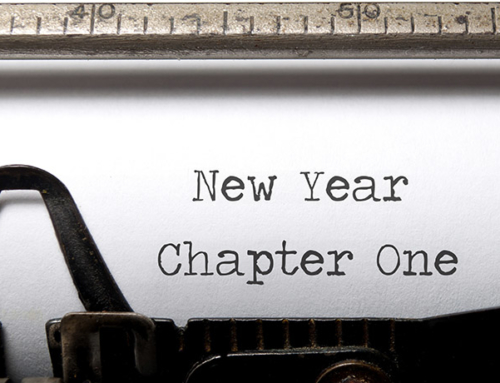Infrequently but regularly, someone asks my advice on some aspect of writing. We are entering the season of reflecting on the end of the year and the coming year. This has inspired me to share some thoughts about starting a daily writing practice, a practice you may have tried once, maybe considered undertaking, or are just interested in learning more about. This daily writing practice can be referred to as journaling, but a daily writing practice takes many forms, only one of which can rightly be called journaling. For now, I focus on a form of reflective journaling, but I’ll address other forms of daily writing in future posts.
You may have already tried a daily journaling practice because it sounded like a way of “getting in touch” with yourself, increasing your sense of gratitude, or clarifying your own thoughts, emotions, values, or goals to yourself. These indeed are common and worthwhile motivations. But despite many people – be they friends or influencers – swearing about the benefits of their daily writing practice, yours may have fallen flat. You may have tried it and stopped because it felt pointless, boring, a waste of time, and perhaps cringey.
Today, I share thoughts on how to make your daily writing work and stick.
What makes daily journaling fail for the many who approach it with an open mind and anticipation? Two reasons, at least. First, many of us do not have and have never had a daily writing practice. Thus, we are unskilled, and, additionally, many of us may have had bad writing experiences in the course of our schooling. This has left a lasting bad taste in our mouths. Second, many of us don’t have a clear model of what this daily writing should be. We may have gotten some pointers on daily journaling but, when we tried following the recommended approach, it still failed to resonate with us.
Perhaps you’ve heard: “Start with ‘morning pages.’ Write three handwritten pages on whatever comes to mind. Just write stream of consciousness.” This provides direction until you try it. When you do, you might end up with something like this: “OK. I’m writing… I’m writing whatever comes to my mind… What’s coming to my mind is that this is boring. Seems pointless… Is this better than exercising?… So far, it most definitely is not! OK. I’m trying to focus now… What’s coming to mind is that I have a really busy day ahead… I don’t think this is working for me. Ugh… Buh-Bye.”
To get some clarity on how journaling can be one of the best things in your life – perhaps, but it’s not for everyone – let me demonstrate with a sample journaling entry and then follow up with my thoughts on it. I invite you to think along with me as we go through this exercise. I’m confident you’ll have some great insights that will inspire and guide you.
Let’s imagine below someone coming to terms with a loss or setback. (Note that the ellipses – the three dots – in the sample are not written out by the writer; they represent pauses in their writing.) This person writes:
“I’m broken… But I’m not broken… The morning breaks, but the morning is not broken. The morning breaks open. It starts the day. It is the start itself. It is the onset, the breaking open… of something beautiful… precious… it is here and now. I am here and now. Do I break open like the morning? Am I a start? Or in the start?… Starting… open… busted out.
“Yesterday was a glorious morning. The sun broke out, shining at me, at everyone. I watched it… I wish I watched it more… with more focus and more appreciation. Today, it’s cloudy. The sun, the morning, didn’t break open. It… it did the opposite of dissolve… The night slowly dissolved, so what did the morning do? Resolve until it was fully present?… The day slowly lightened… it coalesced into itself… Am I too a cloudy morning? Will I lighten? Resolve? Coalesce into myself… My true self? How would this happen? What would happen? How would I know? What would lead me to lighten up… Break open? Which way is my way? What pushes me to lighten, open, resolve? Or pulls me? The morning just does it, just opens up. It’s just unfolding… of its own accord… from the unfolding of the world… But I’m part of the world too. I unfold… I unfold. I do. I can. I am unfolding and changing because everything does. I am life, part of everything. I belong…”
Now, let me offer some thoughts. Was this stream of consciousness? Yes, but it seemed, perhaps, somewhat different or more. So, what was going on here? I think of stream of consciousness as an approach complementary to another one I’ll name ‘call and response.’ Let me explain both.
Stream of consciousness: this approach entails writing down, often as quickly as possible, every thought that enters the mind, that arises into consciousness as a phenomenal experience, irrespective of how subtle it may be. This is a form of ‘automatic writing,’ a writing that entails a conscious letting go, of not trying to direct one’s thoughts or to presume to know what path the arising thoughts are taking. In this way, the writer non-judgmentally writes ‘everything’ that enters their mind, perhaps bypassing their evaluative function, one that could reject or intrusively try to alter the direction of these arising thoughts.
Stream of consciousness is a worthwhile approach for the reasons stated, but there are also downsides to recording, without pause, every thought that arises. The call-and-response approach compliments the stream-of-consciousness approach, as I outline below.
Call and response: In this approach, the writer does pause and, indeed, often spends more time in stillness and silence than in recording each arising thought. In this approach, the writing self is ‘in dialogue’ in a couple of ways. The self is in dialogue with the silence, that realm from which thoughts and other forms of experience arise. Martin Heidegger called this the attuning stillness (Geläut der Stille). From this still silence words arise.
Sometimes what arises in inner speech is a form of ‘mental noise’ or the ‘flotsam and jetsam’ of the mind’s ceaseless inner monologue (which not everyone experiences, btw). These superficial thoughts include, “I’m not looking forward to today. I’ll be really busy. Oh yeah, it’s my turn to make dinner, so I have to stop at the store on the way back home, etc.” What we as writers can do is to nonjudgmentally accept these thoughts without responding to them. They are not thoughts without value. We do need to consider and plan our days, after all. We can let these kinds of thoughts ‘burn off,’ that is, arise, bide awhile, and fall away into the past. But if we allow ourselves to enter the space of stillness and silence, of a calm awaiting, soon some thought or image or feeling will arise, one that resonates, one we may respond to with our whole body. This is the self resonating with the attuning stillness. That stillness is not neutral. If we pay attention, it can guide us and help us discern thoughts and other experiences that feel different, that feel more real, true, and compelling, like something that our life may depend on.
We are also in dialogue with our own self in a question-and-answer or a call-and-response pattern. We ask a question, pause, and listen for answers to arise, to come to us. Whatever the answer is that arises, it gives rise to the next question, and so on. And through this question-and-answer dialogue, we continue onward. We are on a thinking path, open to wherever it will take us.
So, in this type of reflective journaling, there are runs of stream-of-consciousness writing alternating with long pauses of silence, of letting go and dwelling in that attuning stillness that grounds thought. In fact, once in such a state, it is important to let oneself relax into it and resist the urge to intrude one’s own thoughts into that stillness. We can recognize when we’re intruding on the organic unfolding of the thinking path. Thoughts that are ungrounded in that still source often feel rushed and impatient and a form of disconnected ‘playing with words or concepts.’ The motto is: Let the Stillness Speak! Of course, we do have an active role to play. We do think and judge and write, but we can do so from a stance of mindfulness and attention to the attuning stillness and the guidance it offers. One might even say that we ‘translate’ the silence into the words of our language.
I wish to make another point, one that seems many people who journal either do not take into account or about which they might disagree with me. The point is this: when you engage in a daily reflective writing practice, you should remember that although it is about you, it’s not really about you. It’s about your curiosity and creativity and lived experience – that’s true – but it’s only part of it. It’s about you and your deep connection to everything else, as part of everything else. You are the coalescence into a physical and sapient form of 13.7 billion years of the unfolding of the universe. You are a child of God if you prefer. Rather than viewing yourself as an enclosed self that is the measure of all things, instead be the site and conduit for the thinking, in its truth, that arises within you but not exclusively from your self and of your agency. You both undertake the project of writing and undergo the thinking that arises within. You are both author and steward of that which comes into your safekeeping. Learning to discern when your agency is needed and when it should be held in abeyance is a key to letting these thoughts flower, to coalesce into something that you recognize as true and good and beautiful.
Thanks,
Dr. Jack
Language Brief
“In the journal, I am at ease.” — Anaïs Nin
“Write hard and clear about what hurts.” – Ernest Hemingway
“I shall live badly if I do not write, and I shall write badly if I do not live.” — Françoise Sagan
“To pay attention, this is our endless and proper work.” — Mary Oliver
“So I often feel like the self that I construct in writing feels truer to how I think of myself than the self I’m constructing in any other way.” — Yaa Gyasi
“Fill your paper with the breathings of your heart.” – William Wordsworth







Leave A Comment